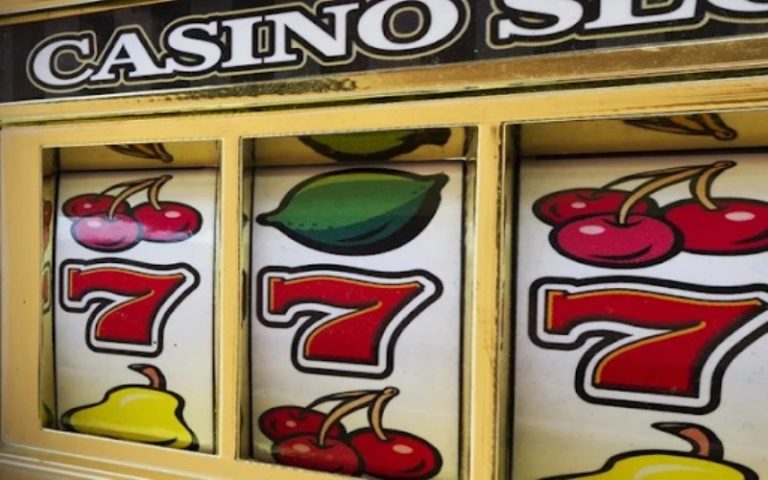Understanding the House Edge: Why the Casino Always Wins in the Long Run

Gambling has long been marketed as a thrilling chance to test your luck and walk away with a big win. But beneath the excitement of spinning reels and rolling dice lies a fundamental truth: the house always has the edge. This isn’t just a saying—it’s a mathematical reality that underpins every game offered in a casino.
In this article, we’ll break down what the house edge is, how it works, and why understanding it is crucial for any player who wants to gamble responsibly.
What Is the House Edge?
The house edge is the built-in mathematical advantage that the casino has over players in every game. It represents the average percentage of each bet that the casino expects to keep over the long term.
For example:
- If a game has a 5% house edge, the casino expects to keep $5 for every $100 wagered.
- This doesn’t mean you’ll lose $5 every time you play—it means that over thousands of plays, that’s the casino’s average profit.
It’s how casinos stay profitable, even when they’re regularly paying out large jackpots.
The House Edge by Game
Different games come with different house edges, some more favorable to the player than others:
- Blackjack (with perfect basic strategy): 0.5% – 1%
- Baccarat (banker bet): ~1.06%
- Craps (pass line bet): ~1.41%
- Roulette (American wheel): 5.26%
- Slot Machines: Typically between 4% – 15%, depending on denomination and design
- Keno: Can reach up to 25% or more
The key takeaway? Not all games are created equal. Understanding the house edge can help you choose games that give you better chances over time.
Why the House Edge Matters
Many players get caught up in the thrill of the moment and forget that every bet they place is affected by the house edge. It may not feel obvious during short-term play, but over time, the results become consistent: the house wins.
For example, if you play slots for hours and wager $1,000 on a machine with a 10% edge:
- You’ll lose about $100 on average, even if you win some rounds along the way.
It’s not luck or manipulation—it’s math.
Randomness vs. Predictability
Casino games are often governed by random number generators (RNGs) or physical randomness (like dice rolls or shuffled cards). This randomness creates uncertainty in outcomes, which is what makes gambling exciting.
But despite the randomness of individual results, the law of large numbers ensures that the house edge asserts itself over time. That means:
- You might win big in the short term.
- But if you keep playing, the odds will work in the casino’s favor.
This is why smart gamblers understand when to walk away.
Payout Ratios: Another Side of the Edge
The house edge isn’t just about odds—it’s also about payout ratios. In many games, the casino pays out less than true odds.
Take roulette, for instance:
- A bet on a single number pays 35 to 1
- But with 38 numbers on the American wheel, the true odds are 37 to 1
That discrepancy between the true odds and the payout is where the house makes its Đăng ký Fun88.
Volatility vs. Edge
Some players confuse volatility (how often and how much a game pays out) with house edge. These are related but different concepts:
- House edge is the casino’s mathematical advantage.
- Volatility refers to the frequency and size of wins/losses.
For example, a slot machine may have high volatility, meaning you might win big or lose fast, but still maintain a consistent house edge over Fun88.
Can You Beat the House?
While the house always has the edge in the long run, some games allow skilled players to reduce that edge:
- Blackjack: Using perfect basic strategy can reduce the edge to under 1%
- Video Poker: Some versions (like Jacks or Better with optimal strategy) can offer close to even odds
- Poker (against other players): The casino only takes a small rake, so skilled players can win consistently
But even in these games, discipline and knowledge are required to tilt the odds in your favor.
How to Use House Edge to Your Advantage
Being aware of the house edge can help you make better decisions:
- Choose lower-edge games if you want better value for your bets
- Avoid high-edge games if you’re playing for longevity
- Set time and budget limits to avoid falling into the trap of long-term play
Andaremember: gambling should be entertainment, not a strategy for making money.
The Role of Responsible Gambling
The house edge doesn’t mean gambling is unfair—it just means it’s a business. But understanding the edge is essential for maintaining a healthy relationship with it.
Here are a few tips:
- Don’t chase losses—this only accelerates long-term losses.
- Don’t rely on luck or superstitions—they don’t change the math.
- Take breaks, manage your bankroll, and walk away on your terms.
Final Thoughts
The house edge is the silent dealer at every table, the unseen factor behind every spin, roll, and draw. It’s not there to cheat you—but it guarantees the casino’s survival, no matter how many people hit jackpots or win big.
By understanding how the house edge works, you can make smarter choices, avoid costly mistakes, and enjoy gambling for what it is: a form of paid entertainment with built-in risks and rewards.
Know the numbers. Play with awareness. Respect the edge.






